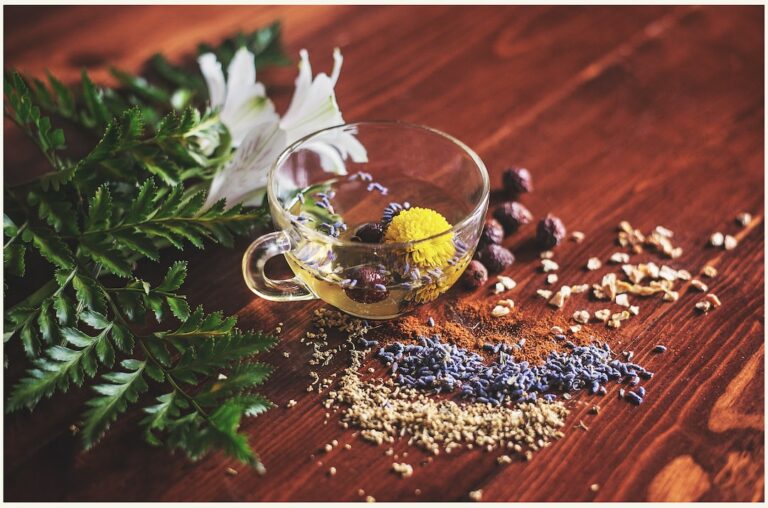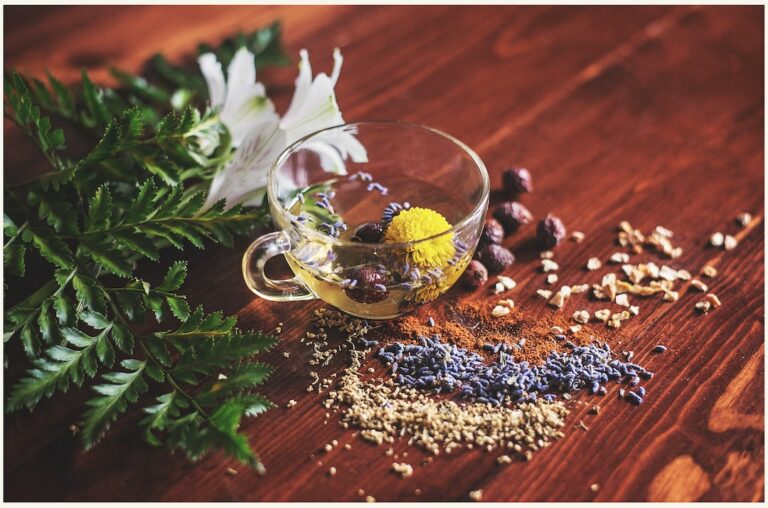Introduction to Natural Medicine
Definition of Natural Medicine
Natural medicine is a holistic approach to healthcare that emphasizes the use of natural remedies and therapies to promote healing and prevent illness. It encompasses a wide range of practices and treatments, including herbal medicine, acupuncture, chiropractic care, and nutrition therapy. The goal of natural medicine is to support the body’s innate ability to heal itself and restore balance. When it comes to antiviral treatments, natural medicine offers a variety of options that can help boost the immune system and fight off viral infections. These include herbal remedies, such as echinacea and elderberry, which have been shown to have antiviral properties. Additionally, lifestyle factors like stress reduction, adequate sleep, and a healthy diet can also play a crucial role in strengthening the immune system and preventing viral infections. By incorporating natural antiviral treatments into your healthcare routine, you can take a proactive approach to maintaining your health and well-being.
History of Natural Medicine
Natural medicine refers to a holistic approach to healthcare that focuses on using natural remedies and therapies to promote healing and well-being. It is rooted in ancient healing practices that have been passed down through generations. The history of natural medicine dates back thousands of years, with evidence of its use in various cultures around the world. In ancient civilizations such as China, India, and Egypt, natural remedies derived from plants, herbs, and other natural substances were commonly used to treat illnesses and maintain health. Over time, natural medicine has evolved and incorporated knowledge from different cultures and traditions, resulting in a diverse range of practices and therapies. Today, natural medicine encompasses a wide array of modalities, including herbal medicine, acupuncture, homeopathy, naturopathy, and more. It continues to gain popularity as people seek alternative and complementary approaches to conventional medicine. By addressing the root causes of illness and promoting the body’s innate healing abilities, natural medicine offers a holistic and personalized approach to health and wellness.
Principles of Natural Medicine
Natural medicine is an approach to healthcare that emphasizes the use of medicinal plants and other natural remedies to promote healing and maintain overall well-being. The principles of natural medicine are rooted in the belief that the body has an innate ability to heal itself, and that by supporting and enhancing this natural healing process, we can achieve optimal health. Medicinal plants play a central role in natural medicine, as they contain a wide range of bioactive compounds that have been used for centuries to treat various ailments. These plants are often prepared in different forms, such as teas, tinctures, or extracts, to harness their healing properties. By incorporating natural remedies into our daily lives, we can tap into the power of nature and support our body’s natural healing mechanisms.
Types of Natural Medicine

Herbal Medicine
Herbal medicine is a form of natural medicine that utilizes plant-based remedies to promote healing and improve overall well-being. It has been practiced for centuries and is based on the belief that plants possess medicinal properties that can be used to treat various ailments. Herbal medicine encompasses a wide range of practices, including the use of herbal teas, tinctures, and topical applications. Some commonly used herbs in herbal medicine include echinacea, ginseng, and chamomile. These herbs are known for their therapeutic effects and are often used to boost the immune system, reduce inflammation, and alleviate symptoms of common illnesses. Herbal medicine is a holistic approach to healthcare that focuses on treating the root cause of the problem rather than just the symptoms. It is considered a safe and effective alternative to conventional medicine, with minimal side effects. Incorporating herbal medicine into your healthcare routine can help promote overall wellness and support the body’s natural healing abilities.
Acupuncture
Acupuncture is a form of alternative medicine that originated in ancient China. It involves the insertion of thin needles into specific points on the body to stimulate and balance the flow of energy, known as Qi. Acupuncture is often used to relieve pain, promote relaxation, and improve overall well-being. Research suggests that acupuncture may be effective in treating various conditions, including chronic pain, migraines, and nausea. It is important to note that acupuncture should be performed by a trained and licensed practitioner to ensure safety and effectiveness.
Homeopathy
Homeopathy is a system of alternative medicine that was developed in the late 18th century by Samuel Hahnemann. It is based on the principle of ‘like cures like’, meaning that a substance that causes symptoms in a healthy person can be used to treat similar symptoms in a sick person. Homeopathic remedies are highly diluted and prepared using a process called potentization, which is believed to enhance their healing properties. The effectiveness of homeopathy is a subject of debate in the scientific community, with some studies suggesting that it may have a placebo effect. However, many people believe in the power of homeopathy and use it as a complementary or alternative treatment for various conditions.
Benefits of Natural Medicine
Holistic Approach to Health
A holistic approach to health considers the whole person – body, mind, and spirit – in the pursuit of optimal well-being. It recognizes that health is not just the absence of disease, but the presence of physical, mental, and emotional balance. One aspect of a holistic approach to health is the incorporation of faith-based recovery methods. These methods recognize the importance of spirituality in the healing process and emphasize the connection between faith and well-being. By integrating faith into treatment plans, individuals can find strength, hope, and support as they navigate their journey towards recovery. Faith-based recovery methods provide a framework for individuals to explore their beliefs, connect with a higher power, and find meaning and purpose in their lives. Through prayer, meditation, scripture study, and fellowship, individuals can find solace, guidance, and healing. The holistic approach to health embraces the integration of faith-based recovery methods as a valuable tool in promoting overall well-being and recovery.
Fewer Side Effects
Natural medicine focuses on using herbal remedies for infections and other health conditions. One of the main advantages of natural medicine is that it often has fewer side effects compared to conventional medications. Herbal remedies, such as those used for infections, are known for their effectiveness and minimal adverse reactions. This makes them a popular choice for individuals seeking alternative treatments. By harnessing the power of nature, natural medicine offers a gentler approach to healing without compromising on efficacy.
Promotes Self-Healing
Natural medicine is a holistic approach to healthcare that emphasizes the body’s innate ability to heal itself. It promotes self-healing by utilizing various therapies and practices that support the body’s natural healing processes. One of the key aspects of natural medicine is the use of herbal remedies, which are derived from plants and have been used for centuries to treat various ailments. Herbal remedies offer a natural alternative to conventional medicine and are known for their effectiveness in addressing a wide range of health issues. By incorporating herbal remedies into their healthcare routine, individuals can harness the power of nature to support their overall well-being.
Criticism of Natural Medicine
Lack of Scientific Evidence
Natural medicine is a broad term that encompasses various alternative healing practices. It is often used as a complementary or alternative approach to conventional medicine. However, one of the main criticisms of natural medicine is the lack of scientific evidence to support its effectiveness. While proponents of natural medicine claim that it offers a proven solution for fast recovery, skeptics argue that the lack of rigorous scientific studies makes it difficult to determine its true benefits. Despite the lack of scientific evidence, many individuals continue to turn to natural medicine as a holistic approach to health and wellness.
Potential Interactions with Conventional Medicine
Natural medicine refers to a broad range of healing approaches that focus on using natural remedies and therapies to promote health and well-being. It encompasses various practices such as herbal medicine, acupuncture, homeopathy, and nutrition. The goal of natural medicine is to support the body’s natural healing processes and address the underlying causes of illness. It is important to note that natural medicine should not be seen as a replacement for conventional medicine but rather as a complementary approach. When considering natural medicine, it is crucial to be aware of potential interactions with conventional medicine. Certain natural remedies and therapies may interact with medications, affecting their effectiveness or causing adverse effects. Therefore, it is essential to consult with a healthcare professional before incorporating natural medicine into your treatment plan, especially if you are currently taking any medications.
Misleading Claims
Misleading claims are a common issue in the field of natural medicine. Many products and therapies are marketed as having miraculous healing powers, but often lack scientific evidence to support these claims. This can lead to false hope and wasted resources for individuals seeking alternative treatments. It is important for consumers to critically evaluate the information presented and consult with healthcare professionals before making decisions about their health. By being informed and cautious, individuals can navigate the world of natural medicine more effectively and make choices that are supported by evidence.
Integration of Natural Medicine and Conventional Medicine
Complementary Medicine
Complementary medicine is a branch of healthcare that focuses on using alternative therapies alongside conventional medical treatments. It aims to enhance the body’s natural healing abilities and promote overall well-being. One of the key aspects of complementary medicine is its emphasis on boosting the immune system against bacteria and other harmful pathogens. By incorporating various natural remedies, such as herbal supplements, acupuncture, and dietary changes, individuals can strengthen their immune response and reduce the risk of infections. These holistic approaches not only address the symptoms of illnesses but also target the underlying causes, promoting long-term health and vitality.
Alternative Medicine
Alternative medicine, also known as complementary medicine, refers to a range of medical practices that are not considered part of conventional or mainstream medicine. It encompasses various therapies and treatments that are used alongside or in place of conventional medicine to promote health and well-being. Complementary medicine is often used in conjunction with conventional treatments to enhance their effectiveness and minimize side effects. One of the key benefits of complementary medicine is its holistic approach, which focuses on treating the whole person rather than just the symptoms of a specific condition. This approach can lead to improved overall health and well-being. By incorporating complementary medicine into their healthcare routine, individuals can potentially experience a wide range of benefits, including improved physical and mental health, reduced stress and anxiety, enhanced immune function, and increased energy levels.
Integrative Medicine
Integrative medicine combines conventional medical practices with complementary and alternative therapies to provide a holistic approach to healthcare. It aims to treat the whole person, taking into account their physical, mental, and emotional well-being. One area of integrative medicine that has gained significant attention is natural medicine, particularly the benefits of herbal medicine. Herbal medicine utilizes plants and plant extracts to promote health and alleviate symptoms of various ailments. The use of herbal medicine has been documented for centuries, and it continues to be a popular alternative to conventional treatments. The benefits of herbal medicine include its natural and holistic approach, minimal side effects, and potential effectiveness in treating a wide range of conditions. By incorporating herbal medicine into their healthcare routine, individuals can take advantage of the numerous benefits it offers.
FAQ (Frequently Asked Questions)
Is Natural Medicine Safe?
Natural medicine is an alternative approach to healthcare that focuses on using natural remedies and therapies to promote healing and well-being. It encompasses a wide range of practices, including herbal medicine, acupuncture, chiropractic care, and nutrition. Many people turn to natural medicine as a holistic way to address their health concerns and improve their overall quality of life. However, it is important to consider the safety of natural medicine, especially when it comes to certain treatments like holistic mercury detox. While natural medicine can offer benefits, it is crucial to consult with a qualified healthcare professional before embarking on any treatment plan to ensure safety and effectiveness.
Can Natural Medicine Cure Serious Illnesses?
Natural medicine is a holistic approach to healthcare that focuses on using natural remedies and therapies to promote healing and well-being. It encompasses a wide range of practices, including herbal medicine, acupuncture, and nutrition. Many people turn to natural medicine as a complementary or alternative treatment for various health conditions. However, when it comes to serious illnesses, such as cancer or heart disease, natural medicine is not intended to replace conventional medical treatments. Instead, it can be used in conjunction with traditional medicine to support the body’s natural healing processes. One example of a natural remedy that has gained attention is the use of fruits as antibiotics. Certain fruits, like cranberries and citrus fruits, contain compounds that have antimicrobial properties and can help fight off infections. While natural medicine can have its benefits, it is important to consult with a healthcare professional before making any significant changes to your treatment plan.
Is Natural Medicine Regulated?
Natural medicine refers to the use of natural remedies, therapies, and techniques to promote health and well-being. It encompasses a wide range of practices, including herbal medicine, acupuncture, homeopathy, and nutrition. Many people turn to natural medicine as a complementary or alternative approach to conventional medicine. However, one common question that arises is whether natural medicine is regulated. While conventional medicine is subject to strict regulations and oversight, natural medicine is not regulated in the same way. This means that there is no standardized system for ensuring the safety, efficacy, and quality of natural medicine products and practices. As a result, it is important for individuals to exercise caution and do their own research when considering natural medicine treatments for conditions such as hormone imbalance.






































